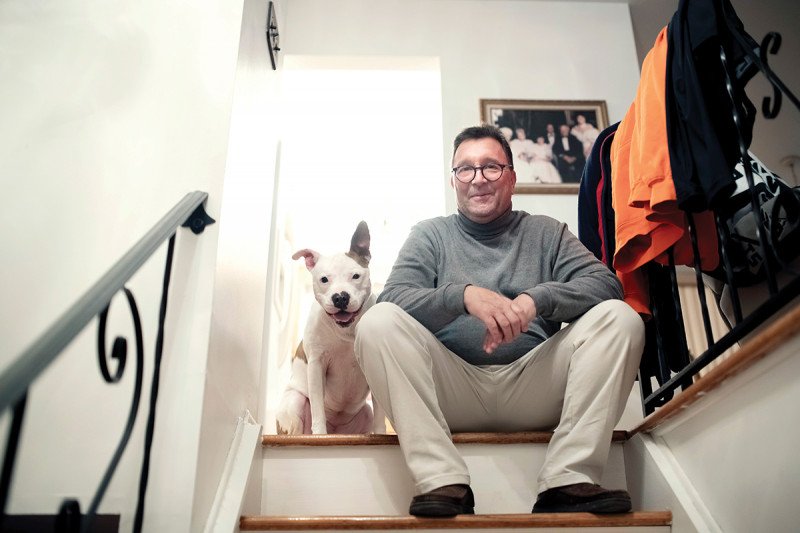
Steve Buechse had been coughing for months and was tired all the time. In January 2019, he found out why: He had a tumor pressing on both sides of his windpipe. He was diagnosed with stage III lung cancer. Steve thought he’d be facing an uphill battle of complicated treatments and all the potential side effects that can come along with them. “I knew right away that this was serious, and I needed to get to Memorial Sloan Kettering,” he says.
The 60-year-old New Jersey resident went to MSK Monmouth, just a short distance from his home in Tom’s River.
At his first appointment with medical oncologist Azadeh Namakydoust, Steve learned that the cancer was actually stage IV and that, depending on its mutations, he might benefit from targeted therapy. Dr. Namakydoust ordered a genetic test of the tumor to find out what was propelling its growth. The results were inconclusive, so she ordered a liquid biopsy. That test revealed that the tumor was driven by a fusion gene called ALK-PON1.
Fusion genes occur when a gene breaks off from one chromosome and attaches itself to another. In adults, they are usually found in blood cancers; they are much less common in solid tumors like Steve’s. In fact, Dr. Namakydoust and her colleagues had never seen this particular fusion gene before.
Liquid biopsies saw a big leap forward in June 2019, when the New York State Department of Health approved one such test called MSK-ACCESS.
Based on the liquid biopsy results, Dr. Namakydoust thought Steve might be a good candidate for a drug called alectinib (Alecensa®). Alectinib is approved to target ALK gene fusions. But because his specific fusion was completely new, she wasn’t sure whether it would be effective.
“Dr. Namakydoust and her team did a lot of research and worked very hard to find the best treatment for me,” Steve says.
Thankfully, Dr. Namakydoust was right: Steve has been taking alectinib for more than a year and feels great. “I could feel the tumor shrinking within the first week. My cough was already getting better,” he says. “I take four pills in the morning and four at night. That’s it. Other than a little fatigue, I don’t have any side effects.”
“When Steve came to see me a few days after starting the drug, I could tell immediately that his health was improving,” Dr. Namakydoust says. “He told me he didn’t realize how sick he’d been until he started feeling better.”
Steve’s been able to continue working — as a print coordinator for a civil engineering firm. And he’s excited for warm weather, when he’ll be able to resume his favorite hobbies: fishing, swimming, and long walks with his pit bull rescue, Bunny.
For now, Steve sees Dr. Namakydoust every three to four months. She is following his progress with CT scans. And since MSK-ACCESS has been approved for clinical use, she’ll be able to monitor his cancer with the liquid biopsy as well.
“I was in rough shape before I started this treatment. I’ve really come a long way,” Steve says. “From where I sit, I just feel very grateful.”

